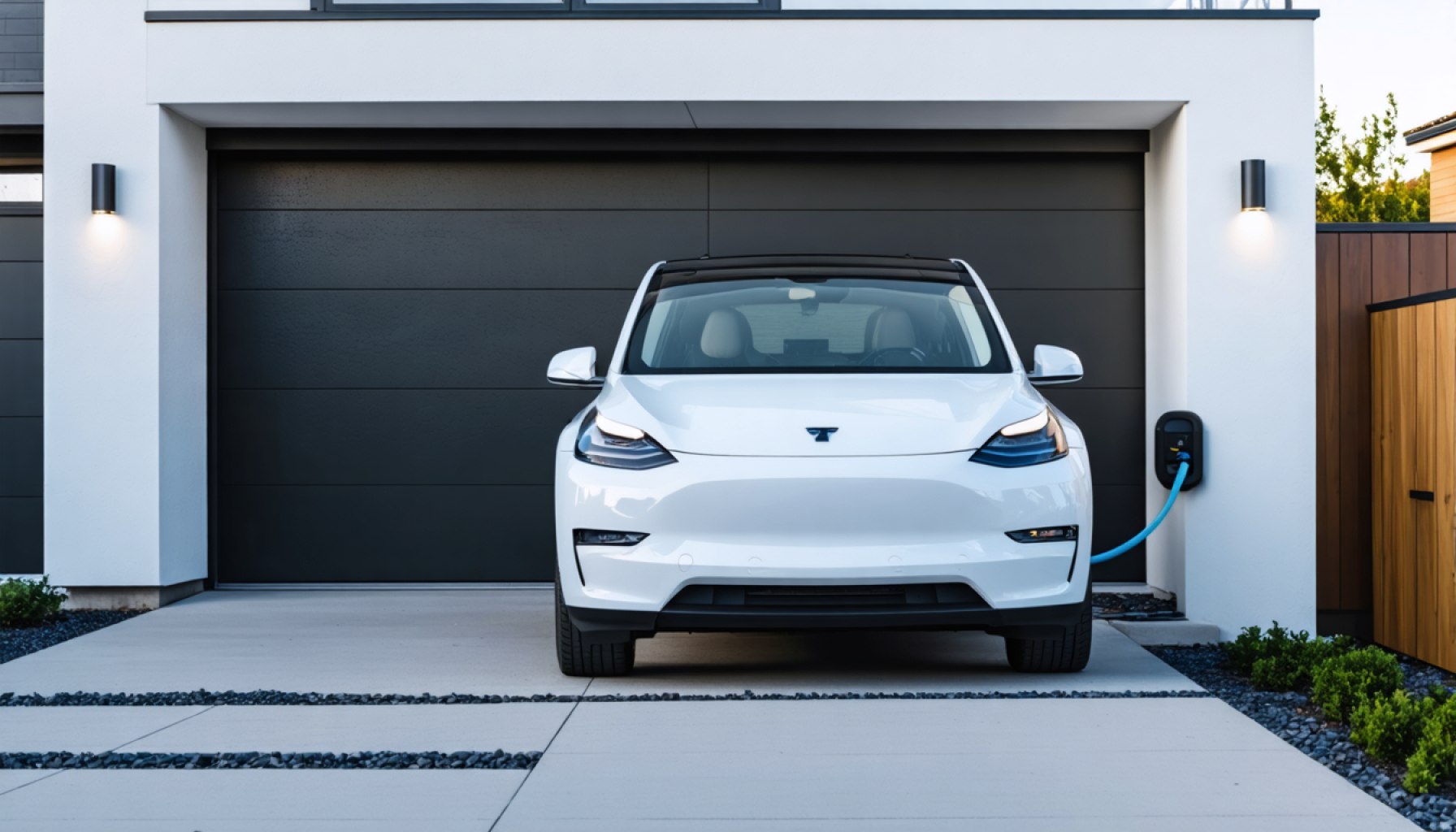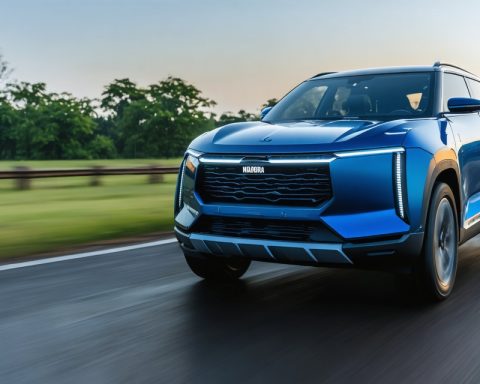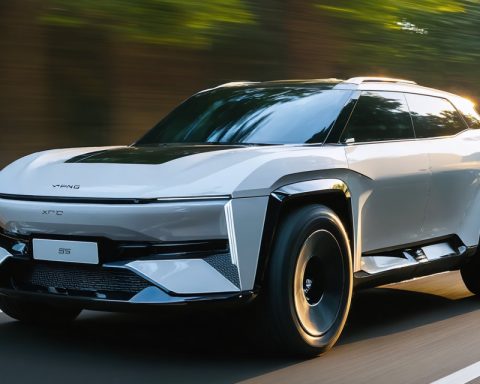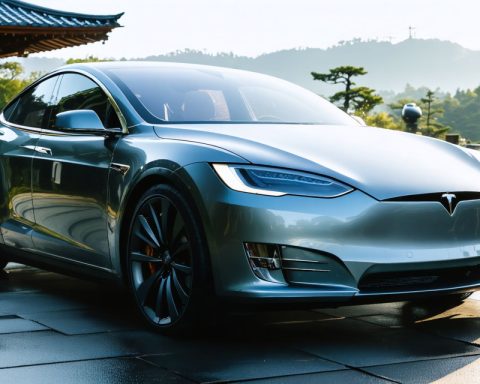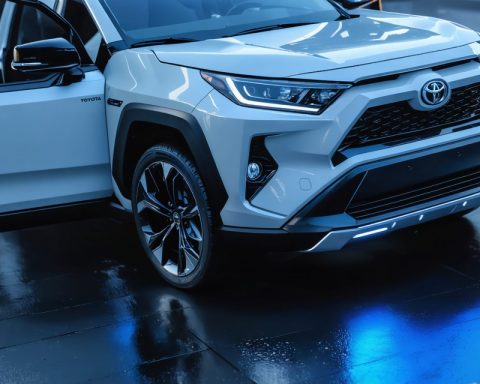- Electric vehicles (EVs) are rapidly gaining traction in North America, evidenced by a 22.1% year-over-year sales increase in January.
- Approximately 85,000 charging stations now span the U.S. and Canada, reshaping urban environments and real estate trends.
- Intelligent EV chargers with bidirectional technology promise enhanced energy efficiency by integrating charging with building management systems.
- These advanced chargers focus on minimizing infrastructure costs and optimizing energy use based on utility rates, offering financial benefits in energy-conscious cities.
- Smart chargers facilitate a symbiotic relationship with renewable energy, utilizing surplus solar power and participating in energy-saving initiatives.
- As the number of EVs increases, cities become smarter, reducing grid load spikes and improving overall energy efficiency.
- Innovations in smart charging solutions are essential for sustainable urban development and are integral to the future of clean energy transportation.
Electric vehicles are steadily carving a dominant lane in North America’s transport sector. Ignoring political shifts and subsidy cuts, the EV market displays relentless momentum. In January alone, roughly 130,000 electric vehicles found new homes across the U.S. and Canada, marking a 22.1 percent jump from the previous year. This surge has not only amped up the demand for electric vehicles but has also ignited the transformation of our urban landscape with an ever-growing web of charging stations. Around 85,000 stations already dot the North American map, poised to rechart our cities.
As electric vehicles become staples in our garages, the demand for charging points grows, emanating a seismic shift in real estate preferences. Property developers and managers are now tasked with accommodating this burgeoning necessity. An intriguing development in this sector is the integration of intelligent EV chargers, which could unlock untapped potential for energy efficiency in buildings.
Smart EV Chargers: A Leap Forward
Imagine a world where your vehicle doubles as a battery for your apartment complex. It’s becoming a reality, thanks to advancements in bidirectional charging technology. These intelligent chargers, integrated with buildings’ management systems, promise not merely the juice to power vehicles but a comprehensive energy solution that could revolutionize how we consume power. Charged during off-peak hours and discharged during high demand, these vehicles could drive down costs dramatically. However, this high-tech vision clashes with an unpredictable real-world challenge—cars still need to be ready for their drivers at any moment.
Charging Smarter, Not Harder
To address these challenges, cutting-edge chargers are being developed to hunt the optimal balance of energy use. These chargers, capable of communicating with building management systems, allow property owners to manage consumption strategically. Say goodbye to high upfront costs—these chargers reduce the need for extra infrastructure by operating on less power, a game-changer for developers wary of staggering installation expenses.
Moreover, by using the local utility’s time-of-use rates to optimize charges, these chargers ensure maximum cost-effectiveness. In bustling metropolises like New York City, where annual building rates hinge on peak power usage, such technology delivers savings that resonate louder than subway announcements.
The Solar Connection
But smart chargers do more—they forge a symbiotic relationship with renewable energy. Solar panels frequently capture more energy than a property can use, leading to excess production. These novel chargers can harness this surplus, charging vehicles and ensuring that not a flicker of solar energy goes unused.
For EV owners, concerns about battery longevity and availability when they need it most are addressed. Strategic communication and compensation ensure that users are more than willing participants in this energy revolution. Leading programs, like those in Vancouver, even offer incentives by topping up digital wallets, painting a future where energy conservation rewards consumers directly.
More EVs, More Efficiency
The intriguing part? As electric vehicles multiply on our roads, the smarter our cities get. The expanded network of chargers diffuses energy demands, preventing load spikes and ensuring that no driver is left disengaged. A modest 10 percent reduction in charger consumption can ripple across the grid, driving vast efficiencies without disrupting drivers’ routines.
As the winds of political policy fluctuate, the trajectory of electric vehicles seems unwavering. Crafting an infrastructure robust enough to support them is a daunting task, yet innovation continues to intersect necessity. Smart chargers are emerging as vital components in the puzzle of energy-efficient urban living. Witness, as vehicles morph from mere modes of transportation into crucial cogs in the grander scheme of energy stewardship, lighting the road to a cleaner, more efficient future.
The Future is Electric: How Smart EV Charging is Transforming Urban Living
The Evolution of Electric Vehicles: Current Trends and Future Forecasts
Electric vehicles (EVs) are no longer a futuristic concept but a growing reality in North America, with approximately 130,000 units sold in the U.S. and Canada as of January 2023, marking a significant 22.1% increase from the previous year. Despite potential challenges like political shifts and subsidy changes, the momentum in the EV market shows no signs of slowing down. As EVs become more ubiquitous, the infrastructure supporting them is also expanding, including an intricate network of around 85,000 charging stations across North America.
Smart EV Chargers: Enhancing Energy Efficiency
Real-World Use Cases
Smart EV chargers are revolutionizing how we think about energy consumption in urban settings. These chargers integrate seamlessly with building management systems to provide both a mode of vehicle charging and an energy solution. Bidirectional charging technology allows vehicles to not only consume energy but also provide stored energy back to buildings during peak demand, reducing overall energy costs.
How-To Steps: Integrating Smart Chargers
1. Assess Energy Needs: Evaluate your building’s energy consumption patterns.
2. Install Smart Chargers: Choose chargers capable of bidirectional energy flow.
3. Connect to Building Systems: Integrate with existing management systems for optimized energy use.
4. Leverage Time-of-Use Rates: Charge vehicles during off-peak hours for cost efficiency.
5. Monitor and Adjust: Continuously monitor the system’s performance and adjust for optimized efficiency.
The Role of Renewable Energy
Life Hacks for Maximizing Solar Usage
Smart EV chargers not only draw from the grid but can also utilize excess solar energy generated by solar panels, thus maximizing renewable energy use. This means that buildings with solar panels can enhance energy efficiency by ensuring no excess energy is wasted.
Incentives and User Engagement
Leading programs in cities like Vancouver showcase how incentivizing EV owners with digital wallet top-ups can encourage participation in energy-saving programs, ultimately creating a more sustainable environment.
The Rise of Networked Charging Stations
As the EV market grows, so does the network of charging stations. Each station plays a role in spreading energy use, leveling out demand and preventing grid overloads. This smart dispersion of energy use promises efficiency gains across the board, reducing the potential for load spikes and ensuring reliable, consistent charging.
Challenges and Considerations
Controversies and Limitations
While smart charging technology offers numerous benefits, there are challenges to consider:
– Vehicle Availability: Ensuring cars are charged and ready when needed is a priority.
– Technology Costs: High initial costs for smart chargers may deter some property developers.
– Interoperability: Compatibility between various charger brands and building management systems needs improvement.
Actionable Recommendations
– Property Developers: Integrate smart EV charging solutions early in the design phase of new developments.
– EV Owners: Take advantage of time-of-use rates and set charging schedules accordingly.
– Policymakers: Continue supporting infrastructure expansion to accommodate future growth in EV adoption.
Conclusion
As EVs continue to shape our cities and transportation networks, smart chargers are a crucial part of the sustainable energy ecosystem. They transform not only how we consume energy but also how we perceive our role in the broader energy landscape. For those interested in sustainable urban development and energy efficiency, now is the time to invest in this burgeoning infrastructure.
For more information on EV adoption and smart infrastructure, visit the U.S. Department of Energy or the Natural Resources Canada websites.
